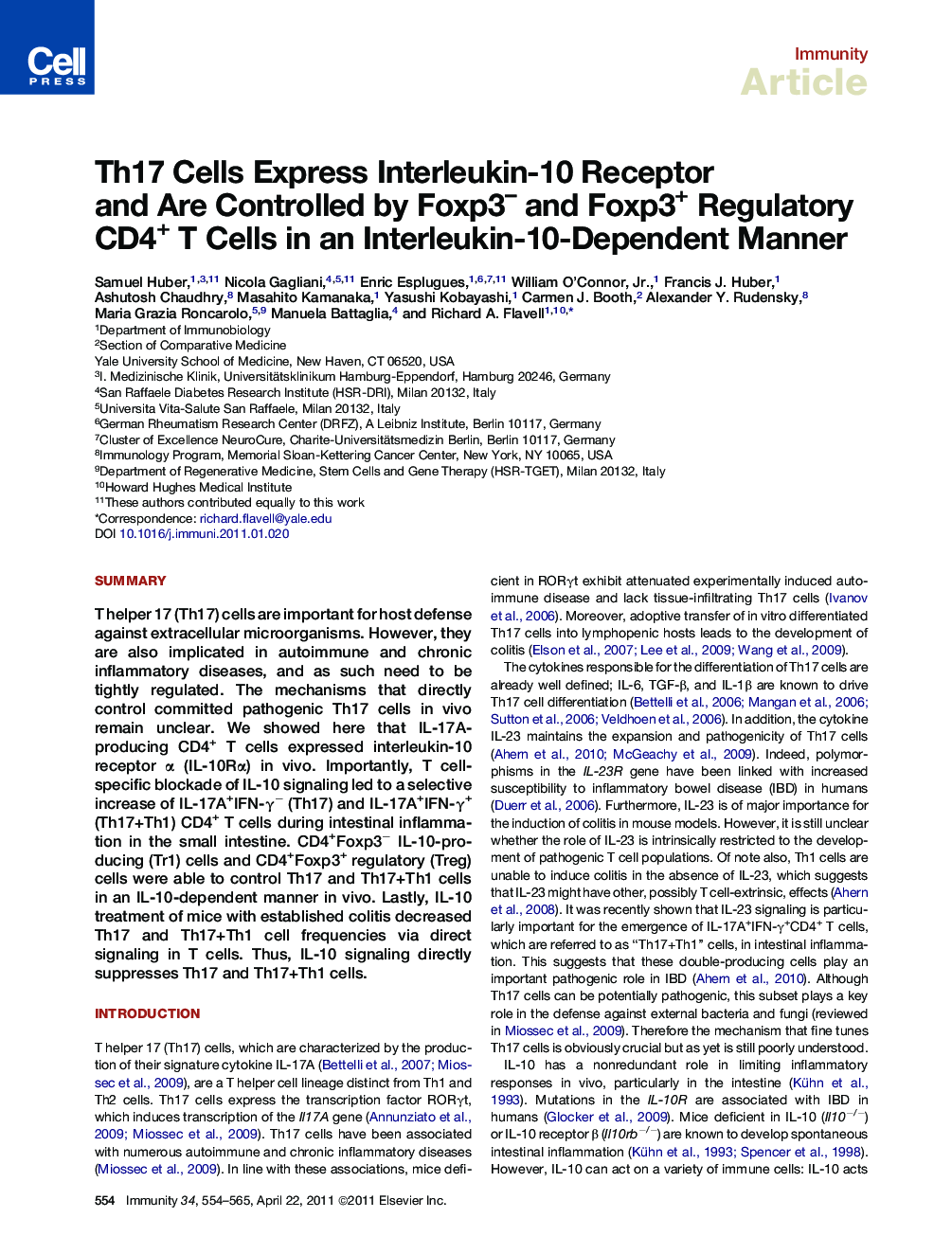| کد مقاله | کد نشریه | سال انتشار | مقاله انگلیسی | نسخه تمام متن |
|---|---|---|---|---|
| 3353443 | 1216859 | 2011 | 12 صفحه PDF | دانلود رایگان |

SummaryT helper 17 (Th17) cells are important for host defense against extracellular microorganisms. However, they are also implicated in autoimmune and chronic inflammatory diseases, and as such need to be tightly regulated. The mechanisms that directly control committed pathogenic Th17 cells in vivo remain unclear. We showed here that IL-17A-producing CD4+ T cells expressed interleukin-10 receptor α (IL-10Rα) in vivo. Importantly, T cell-specific blockade of IL-10 signaling led to a selective increase of IL-17A+IFN-γ− (Th17) and IL-17A+IFN-γ+ (Th17+Th1) CD4+ T cells during intestinal inflammation in the small intestine. CD4+Foxp3− IL-10-producing (Tr1) cells and CD4+Foxp3+ regulatory (Treg) cells were able to control Th17 and Th17+Th1 cells in an IL-10-dependent manner in vivo. Lastly, IL-10 treatment of mice with established colitis decreased Th17 and Th17+Th1 cell frequencies via direct signaling in T cells. Thus, IL-10 signaling directly suppresses Th17 and Th17+Th1 cells.
Graphical AbstractFigure optionsDownload high-quality image (287 K)Download as PowerPoint slideHighlights
► IL-10 signaling in T cells controls the emergence of Th17 and Th17+Th1 cells
► IL-10Rα is highly expressed by IL-17A-producing CD4+ T cells in vivo
► Tr1 and Treg cells can both independently suppress IBD induced by Th17 and Th17+Th1 cells
► Suppression of Th17 and Th17+Th1 cells by Tr1 or Treg cells is dependent on IL-10
Journal: - Volume 34, Issue 4, 22 April 2011, Pages 554–565